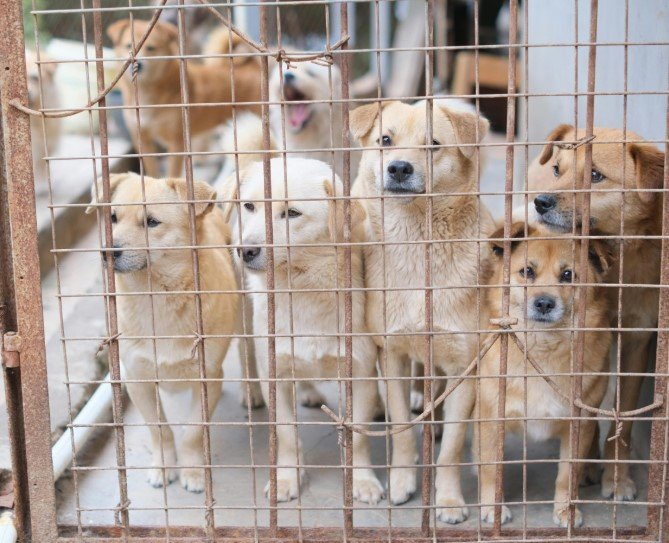A new state law bans the sale of pets in public spaces, but shelter leaders say it’s just scratching the surface of Georgia’s mounting animal overpopulation crisis.
Georgia’s latest animal welfare law just went into effect, and while it’s got a clear target—stopping the sale of pets in public places—it’s also stirring up deeper concerns. Shelter workers on the frontlines say the real issue runs much deeper than parking lot puppy peddlers.
And if you ask folks like Dee Allison, director of the Houston County Humane Society, this new law might even backfire if it’s not part of a larger fix.
No More Pets for Sale at the Flea Market
Under the new measure, it is now illegal to sell cats, dogs, or domestic rabbits in common public areas across Georgia. That means no more sidewalk sales, park giveaways, or shady back-of-the-van deals in grocery store parking lots.
The law covers:
-
Roadsides and medians
-
Parking lots
-
Public parks
-
Fairs, carnivals, and festivals
-
Seasonal flea markets and similar temporary set-ups
For years, these spots have been go-to zones for casual breeders and people offloading litters of puppies or kittens without so much as a vaccine record in hand.
Now, lawmakers say it’s about cracking down on backyard breeders, scams, and unsafe pet sales.
But what happens next? That’s where things get fuzzy.

Shelters Are Already Drowning
At the Houston County Humane Society, the numbers speak for themselves. In just the last six months, they’ve taken in over 100 animals. And they’re not alone.
Across the state, shelters are full, fosters are maxed out, and adoptions can’t keep pace with the inflow. Allison says the public sales ban might help a little—but it doesn’t change the fact that people are still breeding and dumping animals left and right.
“If they can’t sell them out in public now, where do they go? What happens to those puppies?” she asked.
Some may get handed off quietly through social media. Others might be kept until they’re too much to handle, then dumped.
Or worse.
The Real Issue? There’s Too Many Pets, Period.
That’s the part that keeps Allison up at night.
Because in her view, the law doesn’t deal with the root cause: too many animals being born in the first place. That’s why she—and others in the shelter world—are pushing for stronger spay and neuter policies across the state.
“We’re putting a Band-Aid on a gushing wound,” she said.
She wants to see more comprehensive changes, including:
-
Mandatory spay and neuter rules for unlicensed breeders
-
State-funded low-cost or free sterilization programs
-
A pet registration system that tracks breeding activity
-
Vaccination and health tracking requirements
“There has to be accountability,” she said. “You can’t just have litters of puppies or kittens and then pretend it’s not your problem anymore.”
What the Numbers Say
Let’s break this down. Over the last few years, pet abandonment and shelter intake have crept up—especially in the post-pandemic boom and bust of pet adoptions.
Many shelters operate close to—or beyond—capacity. The reality is, without fewer litters being born, the system is overloaded.
Law With Teeth, But No Backbone?
The law passed with relatively little public resistance. After all, most people don’t love the idea of animals being sold like knock-off handbags next to hotdog stands.
But while it’s a visible win, critics say the legislation might be more bark than bite without enforcement muscle or accompanying reforms.
Right now, it’s unclear how local law enforcement will monitor compliance—or if they even have the resources to.
“We’re trying to plug holes in the dam with our fingers,” Allison said. “If there’s no infrastructure to support it, we’re just spinning our wheels.”
One sentence here: Local officials haven’t released any enforcement guidelines yet.
What Comes Next?
The hope is that the law helps cut off one supply route for unethical breeders and reduces impulse pet purchases made in casual settings. But animal advocates are calling for a more robust plan.
There’s talk among some Georgia lawmakers about creating a task force to assess animal welfare statewide. Ideas like breeder licensing, registration databases, and rural veterinary outreach are floating around—but so far, nothing concrete.
Some counties, like Fulton and Cobb, already require sterilization for adopted pets. Advocates want that kind of policy to go statewide.
Until then, the shelters carry on.
“There’s no off-season here,” Allison said, exhaling deeply. “It’s always full.”
And for now, while the roadside pet sales might be history, the animal welfare crisis in Georgia is far from over.
